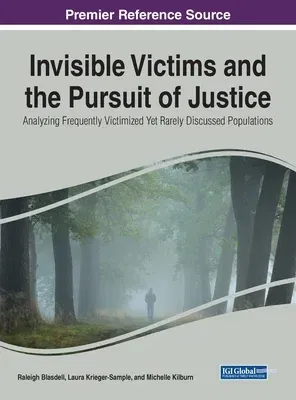Victims of crime may experience a wide variety of traumas that result in
physical, sexual, financial, psychological, emotional, and/or social
consequences. While the types of trauma can vary greatly and include
lesser-known forms such as vicarious and secondary trauma, identifying
and recognizing victims can be complicated. Throughout this book,
experts and professionals from academia and the fields of criminal
justice, social work, and mental health acknowledge victims historically
overlooked by society, political movements, the media, and/or the
criminal justice system - we acknowledge the invisible victims.
Invisible Victims and the Pursuit of Justice: Analyzing Frequently
Victimized Yet Rarely Discussed Populations pioneers the assertion that
our view of victims needs to be more inclusive by exploring invisible
victims that are rarely, if ever, a focus of discussions in traditional
victimology textbooks. To educate the reader and begin working toward
positive change, each chapter identifies an invisible victim and
provides the background, controversies, issues, solutions, and areas of
future research. It is crucial to identify these gaps in the field as
some of the most victimized populations remain absent from important
dialogue on crime victims. This book is appropriate for a wide range of
readership including but not limited to criminologists, victim service
providers, psychologists, sociologists, social workers, advocate groups,
law enforcement, lawyers, defense attorneys, criminal justice
practitioners, academicians, researchers, and students studying
criminology, criminal justice, victimology, social work, psychology, and
social justice.

